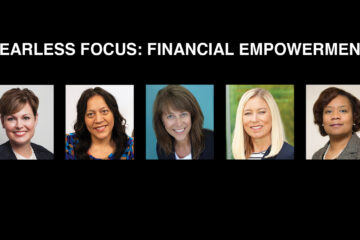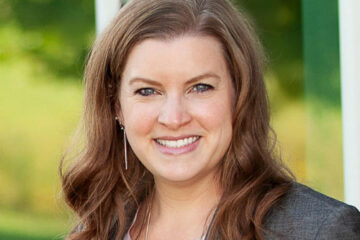Confidence plays a huge role in whether women dive into challenges or deflect them.
But it goes further than that. Confidence can dictate whether a woman negotiates her salary. Confidence can determine whether or not a woman stands up against inequities, Suzanna de Baca, president and CEO of Business Publications Corp., told a group of more than 350 Iowa women gathered online.
de Baca moderated a Fearless Focus panel about confidence on June 22 hosted by the Business Record. This panel was the second Fearless Focus in a three-part virtual series.
The four guest panelists were:
- Bridget Cravens-Neely, CEO, Big Brothers Big Sisters of Central Iowa.
- Jennifer Carruthers, owner/executive producer 11 Eleven Productions.
- Angie Chaplin, founder/owner, Mindful Leadership.
- Abi Reiland, senior associate, Jones Lang LaSalle Brokerage.
Below are personal stories from the conversation. Some responses have been condensed and edited for clarity.
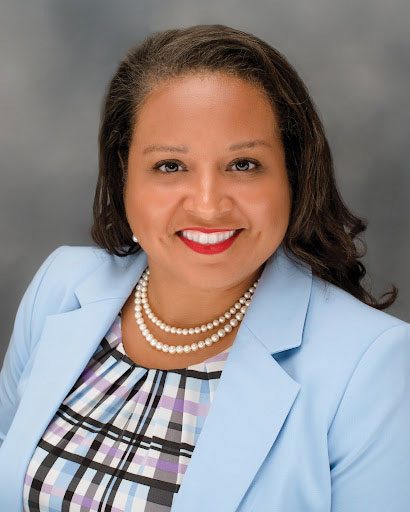
Bridget Cravens-Neely:
Cravens-Neely spent 30 years in the insurance industry. A new leader gave her uncharacteristically low marks on a performance review. She had always been a high performer and a hard worker. She said she felt devalued and crushed. The new leader couldn’t explain the low performance ratings. Their working relationship became toxic. She sometimes teared up in places where no one could see her.
Cravens-Neely’s own words:
“As the months went on, and this continued to happen, I dropped weight, lost confidence in myself. My family saw a complete change in me to the point where they were extremely concerned. And finally, I just hit what I consider for myself bottom and turned to my faith and prayed a lot. I also started investing in understanding my purpose and really pursuing and claiming and defining what my purpose was. And once I discovered my purpose, that is what helped rejuvenate me. That’s what helped me to reclaim my confidence, in addition to the support from family and friends, and even some colleagues who stepped in and reassured me that what I was experiencing was not the norm. I needed that reassurance in order to get my feet back on solid ground. And I made a promise to myself and I made a promise to God that I will never let anyone ever define me outside of what my purpose is and who I am here to be.”
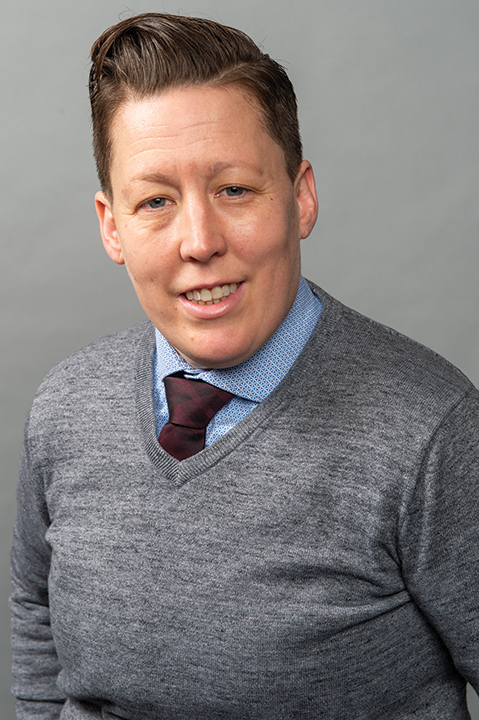
Jennifer Carruthers:
Curruthers said she has struggled consistently with imposter syndrome. Although she has experienced success externally, she grapples internally with thoughts of feeling like a fraud or a phony. She sometimes doubts her abilities, despite receiving numerous awards and reaching substantial goals in fundraising and leadership. Carruthers said she especially struggled with confidence while trying to open a new gay bar.
Carruthers’ own words:
“I found my dream location, submitted three letters of intent. On that spot we could preserve 40
years of queer history in this specific location, and only to feel like I was never really given a chance. And what’s interesting about that is, my immediate first thought was, ‘What’s wrong with me? What did I do wrong? Do I need to improve my business perspectives? Are the male business partners recognizing that me, as a queer female, may not be enough as it is, which is a confidence issue on its own. Are they not enough? Have I brought the right people to the table?’ That experience has really set me back a year. I’m just now kind of getting back into it. I was feeling dejected, not worthy, not competent.
“Go for whatever you want to go after. Don’t let anyone else define what your success or what your competence is. When you’re not feeling confident, the one thing I do is lean into being courageous. It just takes courage to get over some fear. And I think confidence is a series of experiences that build a lot of little courageous steps.”
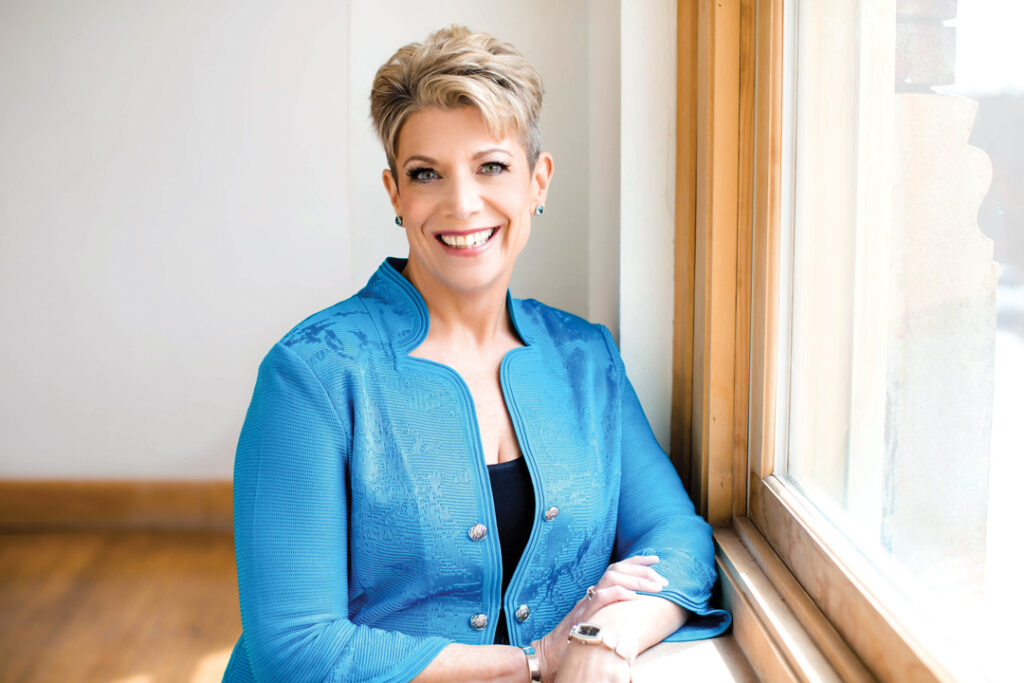
Angie Chaplin:
Chaplin found herself in relationships, both personally and professionally, that affected her confidence. She realized that the manner in which she was being talked to, and the way she was being treated, were causing her own negative self-talk – something she had worked very hard to stop during her journey to sobriety. Ultimately, she learned to be fearless by walking away from experiences that no longer served her, including her first personal relationship after a divorce. It was also her first sober relationship, she said.
Chaplin’s own words:
“It wasn’t about walking away. It was about walking toward, and it allowed me to walk toward the authenticity and the integrity that keeps me grounded in my values. The same situation came up professionally, when I was able to recognize that a lot of those toxic traits from a narcissistic relationship were also very prevalent and powerful in a workplace scenario. And again, having the courage to say, ‘I value my health and my well-being more than I value fitting into the mold of what this role, or what this position, requires me to be.’ I think we continue to find ourselves in these crossroads of choosing ourselves and choosing to walk away from situations that no longer serve us or serve our need and worthiness around confidence.”
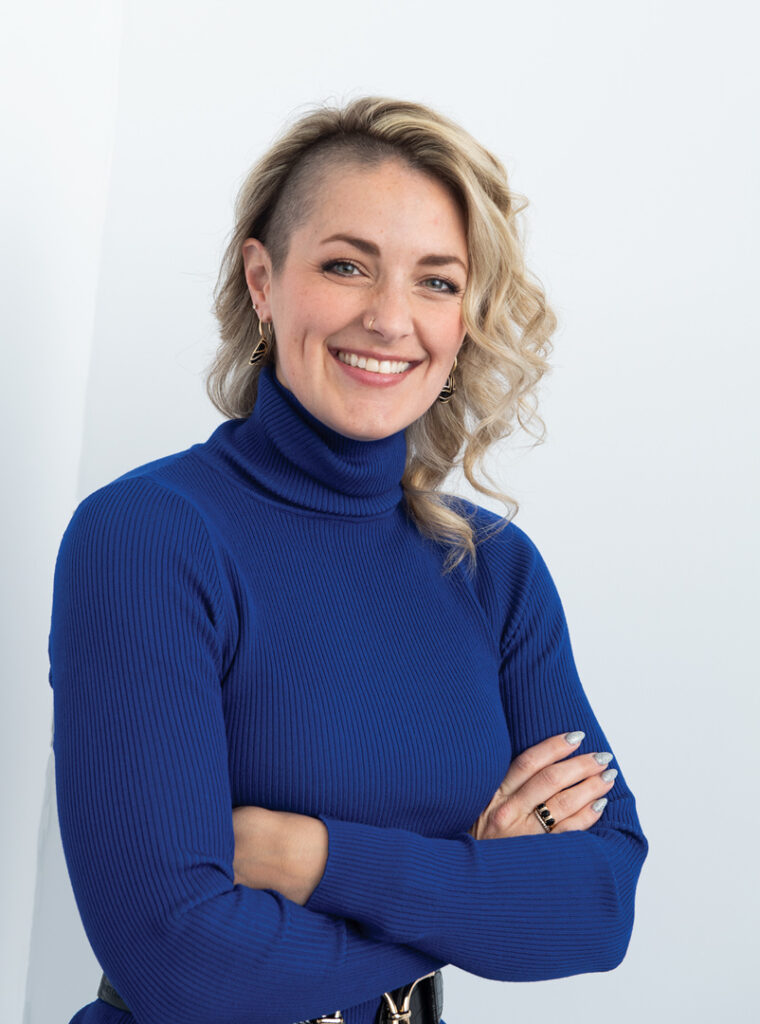
Abi Reiland:
Reiland said she attributes the confidence that she has today to the lowest moment of her life – going through a divorce and becoming a single mom. In her youth, Reiland participated in sports that were very body-focused, including gymnastics. As an adult, she struggled with disordered eating.
Reiland’s own words:
“Coming out of that relationship, I really doubted everything about myself. Did I look the way that I should? Was I doing enough professionally? Was I smart enough? Was I funny enough? Was I charming enough? All the things, and trying to date at that time was a real challenge because I didn’t even think that I was worth dating. It was really difficult to see a former partner start to explore dating as well, and again, I let it kind of crush me a bit. But one day I walked into a gym, a CrossFit gym, and I started participating. It sounds really cliche, and I think people sometimes giggle about CrossFit being a cult, but I all of a sudden was picking up weights and doing these skills that I didn’t know were even possible for me to do. I think as my body develops strength, my mentality strengthened as well. My spirit got stronger, and all of a sudden I would walk out of that room believing that I could do anything and that I was enough and I could be whoever I wanted to be.”
